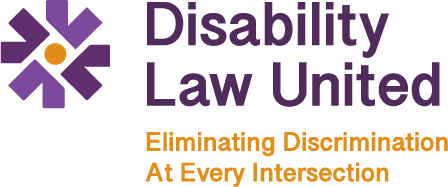 On February 9, 2016, Disability Law United and our wonderful co-counsel at the National Association of the Deaf, the Disability Rights Education and Defense Fund, and the Disability Law Center got terrific decisions in our cases challenging Harvard’s and MIT’s failure to caption online content in thousands of videos that the universities make available to the public on the internet. Plaintiffs filed suit against each university under the Americans with Disabilities Act (ADA) and section 504 of the Rehabilitation Act (Section 504). Each university moved to stay the case against it until the Department of Justice issued promised regulations governing website accessibility or to simply dismiss the case.
On February 9, 2016, Disability Law United and our wonderful co-counsel at the National Association of the Deaf, the Disability Rights Education and Defense Fund, and the Disability Law Center got terrific decisions in our cases challenging Harvard’s and MIT’s failure to caption online content in thousands of videos that the universities make available to the public on the internet. Plaintiffs filed suit against each university under the Americans with Disabilities Act (ADA) and section 504 of the Rehabilitation Act (Section 504). Each university moved to stay the case against it until the Department of Justice issued promised regulations governing website accessibility or to simply dismiss the case.
In decisions issued today, Magistrate Judge Katherine A. Robertson of the U.S. District Court for the District of Massachusetts recommended denial of the universities’ motions in full and included excellent language affirming the digital communication rights of people who are Deaf or hard of hearing. The court issued a lengthy decision in the Harvard case and adopted the same reasoning in the MIT case. The court’s holdings in the Harvard case include:
- The plaintiffs’ claims and their theory of discrimination “fit[ ] squarely within the parameters of Section 504 as delineated by the [Supreme] Court;”
- Regardless of the status of the Department of Justice regulations, the plaintiffs’ position was supported by the Department of Education regulations;
- The goal of Section 504 is to ensure that “all programs, projects, and activities receiving [federal financial] assistance … [are] carried out in a manner consistent with the principles of … respect for the privacy, rights, and equal access (including the use of accessible formats) of … individuals [with disabilities].” To hold otherwise at a time when the internet has become “central to every aspect of the ‘economic and social mainstream of American life,'” would run directly counter to that goal; and
- The universities’ flexibility to choose an appropriate auxiliary aid did not extend so far as to allow it to choose to provide no auxiliary aid where required for effective communication.
In sum, the court held that the plaintiffs’ allegations that much of the universities’ online video content is inaccessible to millions of Deaf and hard of hearing individuals — and their identification of captioning as a measure that would provide the meaningful access millions of hearing individuals already enjoy — were sufficient to state a claim under Section 504. The court also stated while the ADA may not require the universities to create or publish accessible online videos per se but that if the universities chose to make videos available online as a service to the general public, then they could not discriminate against Deaf and hard of hearing individuals in the “full and equal enjoyment” of that service.
The court’s decision in the Harvard case enunciates important principles in the effort to ensure that the internet is accessible to everyone.
The plaintiffs in the MIT case are represented by Disability Law United, the NAD, DREDF, and the Disability Law Center. The Plaintiffs in the Harvard case are represented by Disability Law United, the NAD, and the Disability Law Center.
